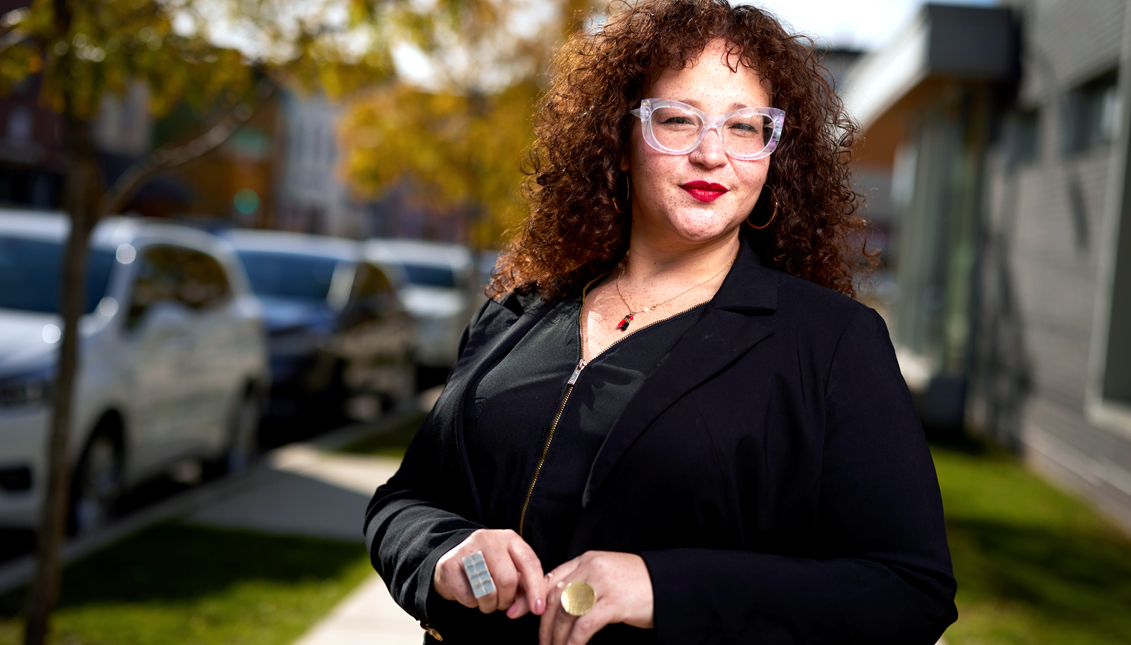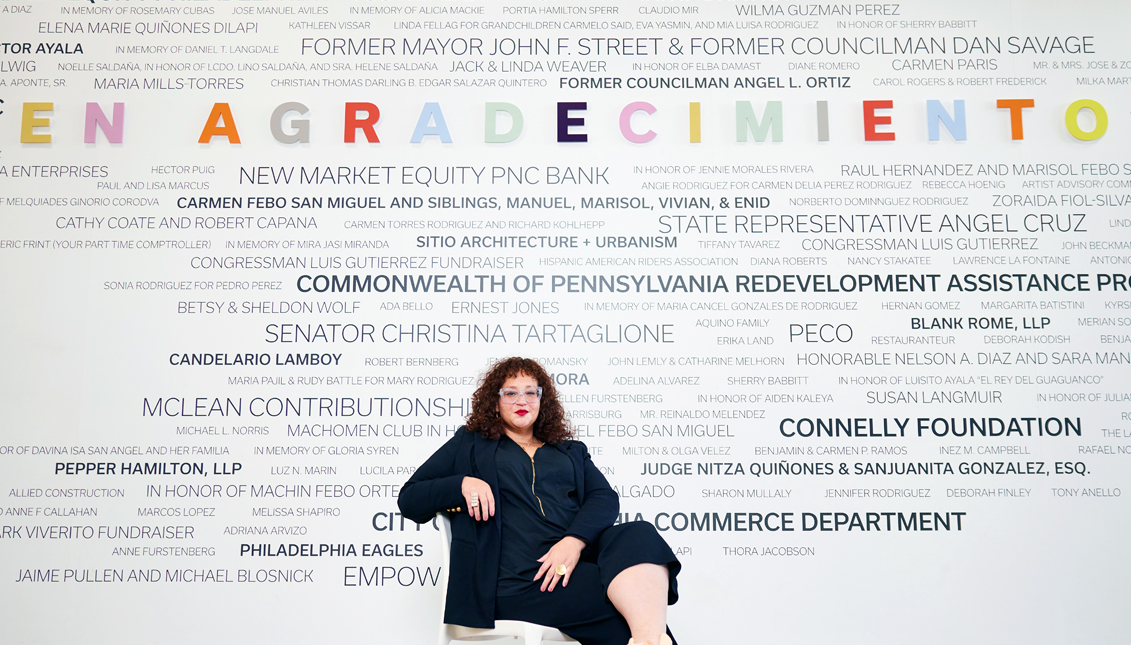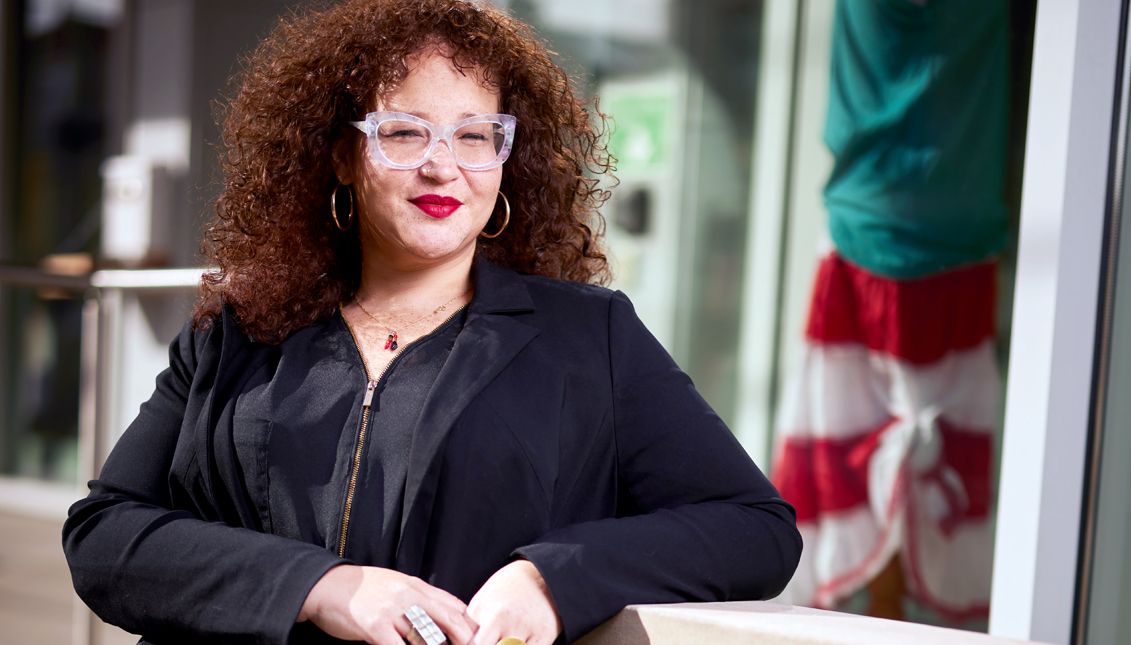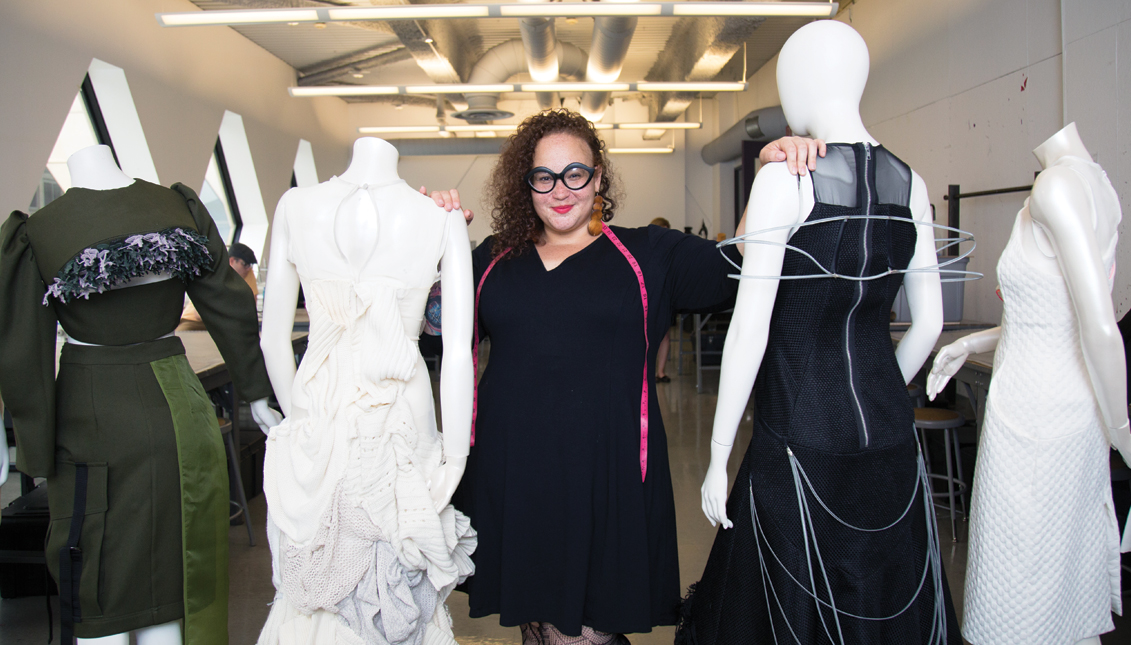
The new leader of cultural resistance at Taller Puertorriqueño
‘Taller Puertorriqueño’, much like Nasheli Juliana Ortiz-González’s fashion, is a symbol of Puerto Rican cultural power and prominence.
On Oct. 13, 2021, fashion designer Nasheli Juliana Ortiz-González was announced as the new executive director of Taller Puertorriqueño, Pennsylvania’s largest Puerto Rican and Latinx art organization.
She is now the head designer of her own brand, Nasheli Juliana, an apparel company focused on social justice, and the co-founder and principal of 22 Studio, a women-led transdisciplinary design practice operating in Puerto Rico and the mainland U.S.
Her work has been showcased in Paris, London, New York, and Miami Fashion Weeks and featured in Vogue, Harper’s Bazaar, GQ, and Forbes, among other publications.
All of her collections have a deeper message and an educational perspective. She loves to take advantage of the power that fashion has in shaping the minds of people. Her collections have either a historical, political, or social investigation behind them.
“Each of my collections has a message and educational perspective. I am obsessed with the power that fashion has in people,” said Ortiz-González.
“Each of my collections has a message and educational perspective. I am obsessed with the power that fashion has in people,” said Ortiz-González.
She was born in Caguas, Puerto Rico and often weaves her heritage into her work, saying that the persistent quest for social justice is derived from the generational trauma of colonization on the island.
“Living as a second-class citizen such as that of Puerto Ricans, woman, queer, mother, is a list that continues to add capable of social judgment and therefore an incredible weight to get out of situations of poverty, educational, cultural, economic and social list goes on. The common thread of my collections is the search for that justice that we all deserve, without buts,” Ortiz-González told AL DÍA.
The talented fashion designer first stumbled upon her craft as a form of physical therapy. She had meningitis at age two, and her mother immersed her into painting, music and dance to develop motor skills.
Before her mother threw her into all these activities, doctors thought that she would never be able to walk or talk. By middle school, she not only proved the doctors wrong, but Ortiz-González was also able to design clothes for her barbie dolls.
When it was time to choose a high school, her mother enrolled her in a vocational school called the Clothing Design Workshop.
Ortiz-González wasn’t happy with the decision, but quickly realized sewing as her lifelong passion after successfully completing her first piece of clothing. It was a moment where everything just made sense.
She considered herself a seamstress until she studied at The Savannah College of Art and Design, where she received her Master’s Degree in fashion design.
“The professors changed my life; they supported me emotionally and financially, above all they believed in my talent. That’s where Nasheli Juliana, the brand, was born,” Ortiz-González said.

Ortiz-González’s website reads: “Fashion is the reflection of society,” and that is evident in her work, which mainly focuses on feminism, her Boricua identity, and sustainable, slow fashion.
“I use the clothes as a protest conductor in the catwalk space, which is very privileged and elitist. Each seam is thought in service of the concept presented,” she said.
Research is a vital part of her creative techniques and methods, and sometimes this research can take years to complete.
“Research is fundamental in my process, understanding and justifying each element, every decision in the pieces, understanding the social context, and the codification in the visual communication elements selected. The connection with the viewer and leading them to interact in an active way with the piece, and the narrative,” she said.
Each of Ortiz-González’s collections are unique and she loves them all equally for different reasons. There’s Architettura morta, her thesis collection, which made it to the United States and was paid for by her professor, Patti Cappalli, so she could finish her master’s degree.
Following collections, such as Suora and Stranded, took her across the Atlantic.
“Suora took me to London Fashion Week and it was a challenge in the making. But Stranded took me to Paris Fashion Week, the subject that has been the one that I have felt closest to my heart,” Ortiz-González said.
Suora, which means ‘sister’ in Italian, was a modern reinterpretation of the traditional uniform of the Loretto Sisters, a group of nuns that engage in human rights movements.
The Loretto Sisters “work for just and act for peace because the Gospel urges” them.
Suora won Ortiz-González an International Design Award for Emerging Fashion Designer of the Year.
Stranded made its debut at Paris Fashion Week in October 2018, and was the result of three years of research and work. The designs featured in the collection include photos of different scenes from Puerto Rico’s political and economic hardships since it became a U.S. colony in 1896.
RELATED CONTENT
“There are eight atrocities committed by the United States against Puerto Rico. The silhouettes are inspired by the trends of the time, but the patterns tell the injustice, but to see them clearly, you need to use 3D glasses. Those glasses represent the distance, but also the Puerto Rican quote: ‘No one knows what is in the pot other than the spoon that shakes it,’” Ortiz-González said.
In February 2020, Ortiz-González was featured on the popular Netflix competition show Next in Fashion. She didn’t make it very far, but was able to network with a group of designers from various backgrounds and broadened her horizons as an artist.
“It was an enriching experience, I met amazing people, designers and understood that commercial fashion and fast fashion are not my thing, and I am happy with that realization,” she said.
At the time, Ortiz-González was a teacher in the fashion department at Moore College, an all women’s college for art and design. Many of her students were first-generation and part of marginalized groups that don’t typically see themselves represented in the fashion and design industry.
But her participation in the show, which was shown on the world’s largest streaming platform, was impactful for her students, who watched a screening of Next in Fashion at the college.

Ortiz-González’s next collection is going to be an offering and tribute to all the women in her life, to honor all the “wise” women who raised and supported her throughout her life.
“I have found a healing force in the process of loving my partner, my friends, my students, my mother and seeing it as a reflection of self-love,” she said.
Ortiz-González is very excited to be the newest leader of Taller Puertorriqueño, as it was the first place she looked for when she arrived in Philadelphia in 2017.
Much like her predecessor, the center was a home away from home and one she gravitated towards for its cultural significance to the city and region.
“I had heard so many stories from Carmen Febo San Miguel and Taller’s mission. It is an honor that carries great responsibility for the sustainability of the Puerto Rican community, a great symbol of cultural resistance that is necessary to select the path of our country from an informed place,” she said.
San Miguel announced her retirement from leading Taller in March, after 22 years at the helm of the organization, and growing it into a regional cultural powerhouse.
As the new executive director, Ortiz-González wants to establish economic power and agency in her community through the arts and design.
“I want it to continue being an organization dedicated to preservation and promotion and cultural resistance for the Puerto Rican community. And I want it to be a connection with the Puerto Rican community inside and outside the island,” she said.
She will officially take the helm on Dec. 27, 2021.












LEAVE A COMMENT:
Join the discussion! Leave a comment.